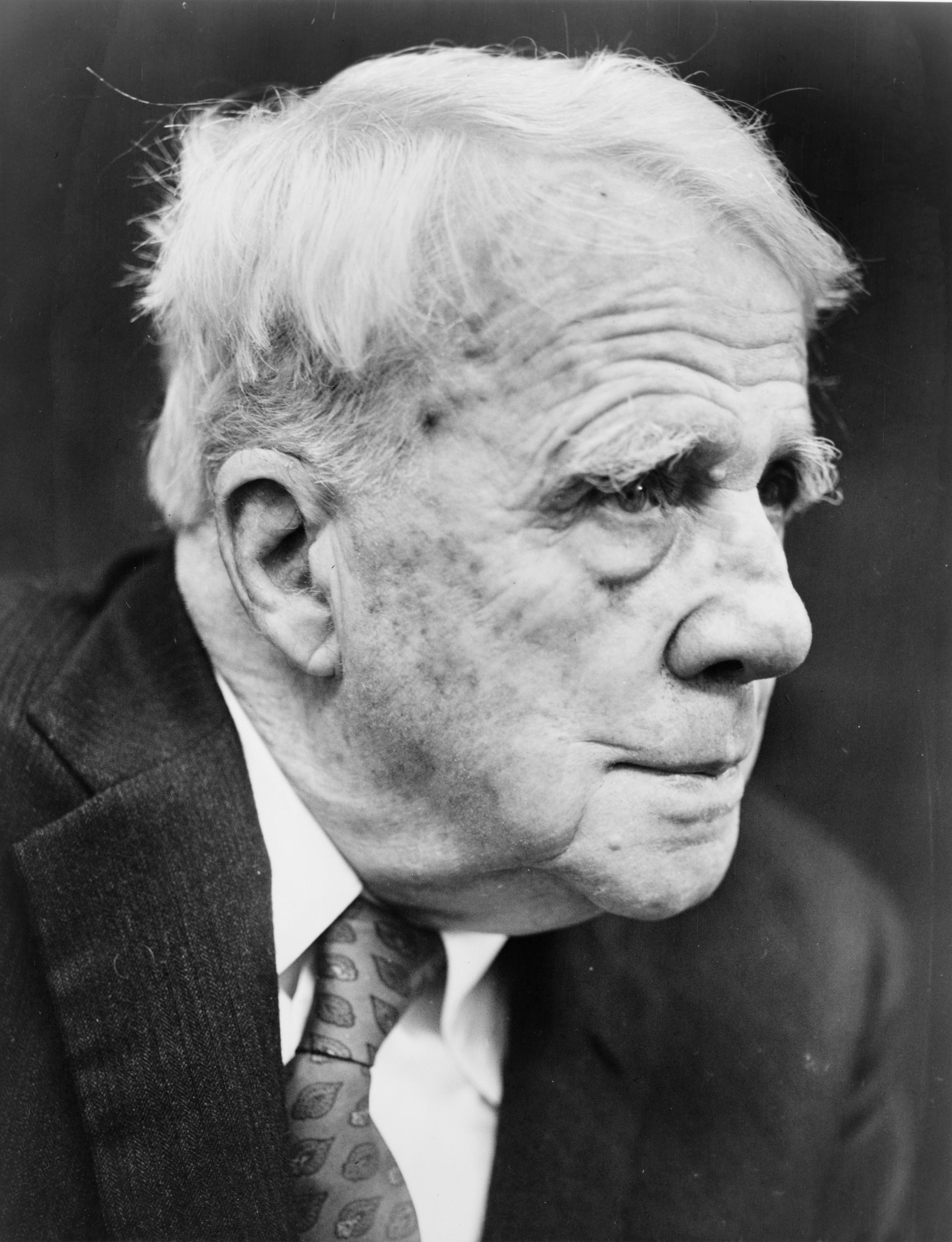Search Results - Frost, Robert, 1874-1963
Robert Frost
 Robert Lee Frost (March26, 1874January29, 1963) was an American poet. Known for his realistic depictions of rural life and his command of American colloquial speech, Frost frequently wrote about settings from rural life in New England in the early 20th century, using them to examine complex social and philosophical themes.
Robert Lee Frost (March26, 1874January29, 1963) was an American poet. Known for his realistic depictions of rural life and his command of American colloquial speech, Frost frequently wrote about settings from rural life in New England in the early 20th century, using them to examine complex social and philosophical themes.Frequently honored during his lifetime, Frost is the only poet to receive four Pulitzer Prizes for Poetry. He became one of America's rare "public literary figures, almost an artistic institution". Appointed United States Poet Laureate in 1958, he also received the Congressional Gold Medal in 1960, and in 1961 was named poet laureate of Vermont. Randall Jarrell wrote: "Robert Frost, along with Stevens and Eliot, seems to me the greatest of the American poets of this century. Frost's virtues are extraordinary. No other living poet has written so well about the actions of ordinary men; his wonderful dramatic monologues or dramatic scenes come out of a knowledge of people that few poets have had, and they are written in a verse that uses, sometimes with absolute mastery, the rhythms of actual speech". In his 1939 essay "The Figure a Poem Makes", Frost explains his poetics:
No tears in the writer, no tears in the reader. No surprise for the writer, no surprise for the reader. For me the initial delight is in the surprise of remembering something I didn't know I knew...[Poetry] must be a revelation, or a series of revelations, for the poet as for the reader. For it to be that there must have been the greatest freedom of the material to move about in it and to establish relations in it regardless of time and space, previous relation, and everything but affinity.Provided by Wikipedia
